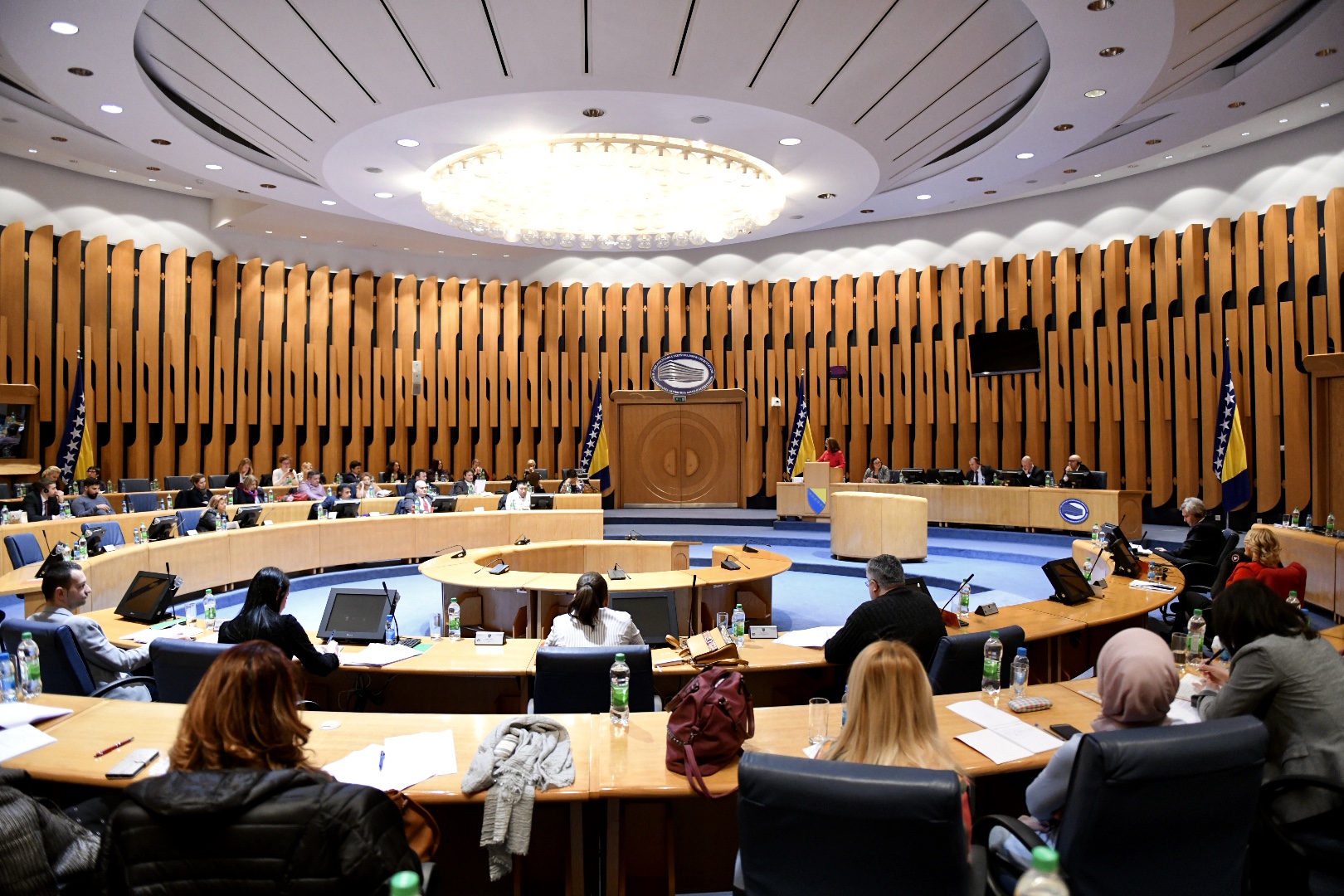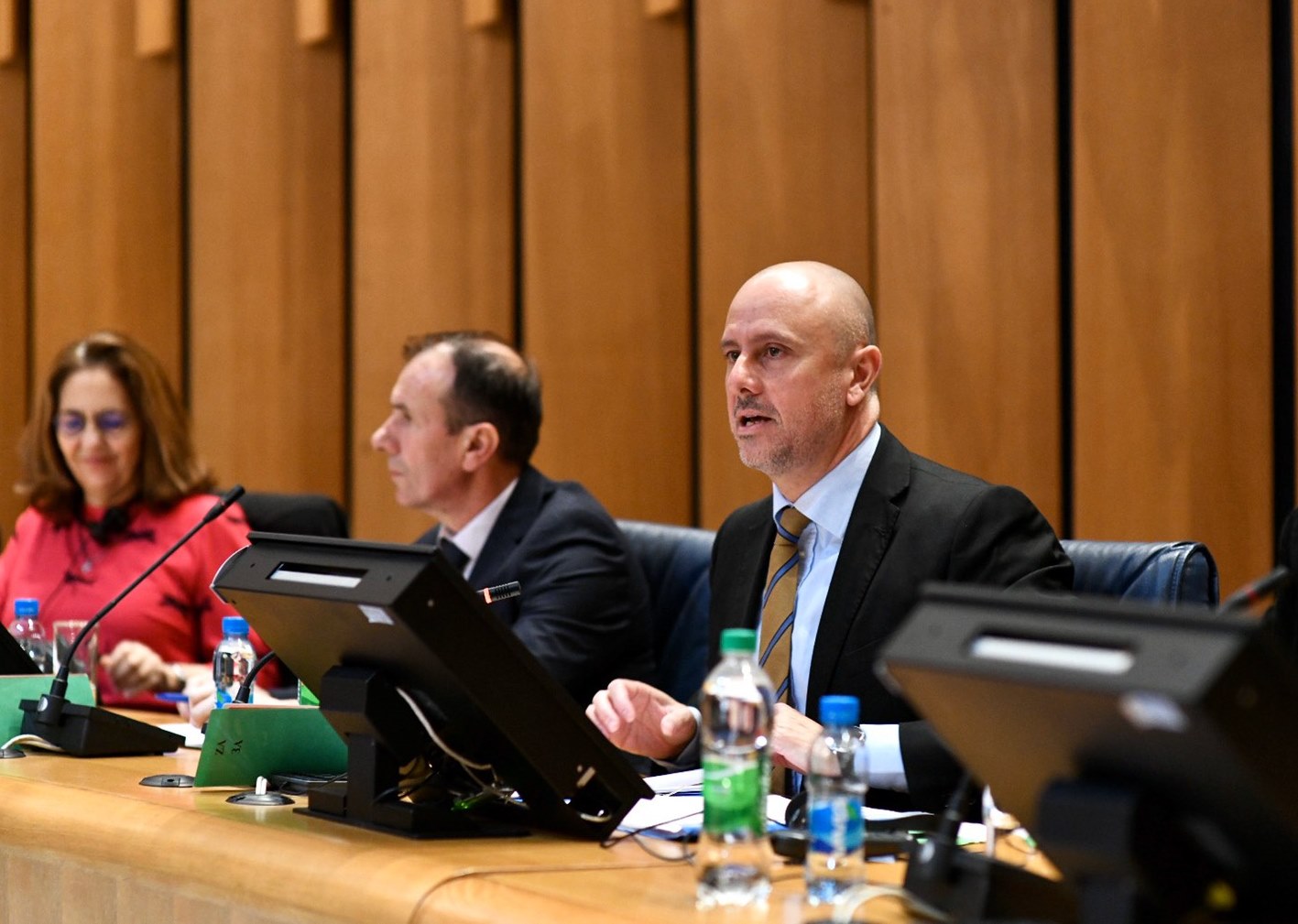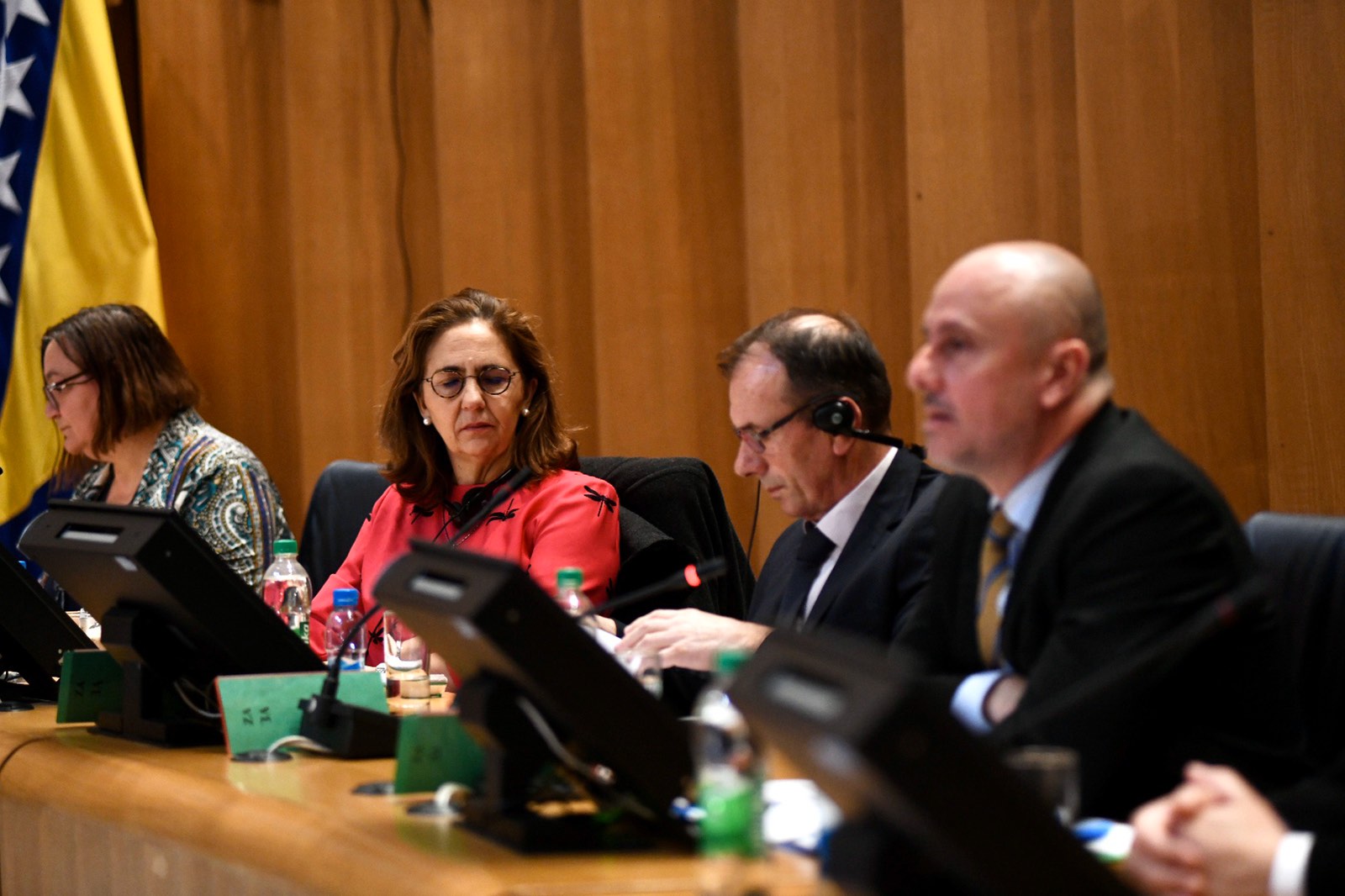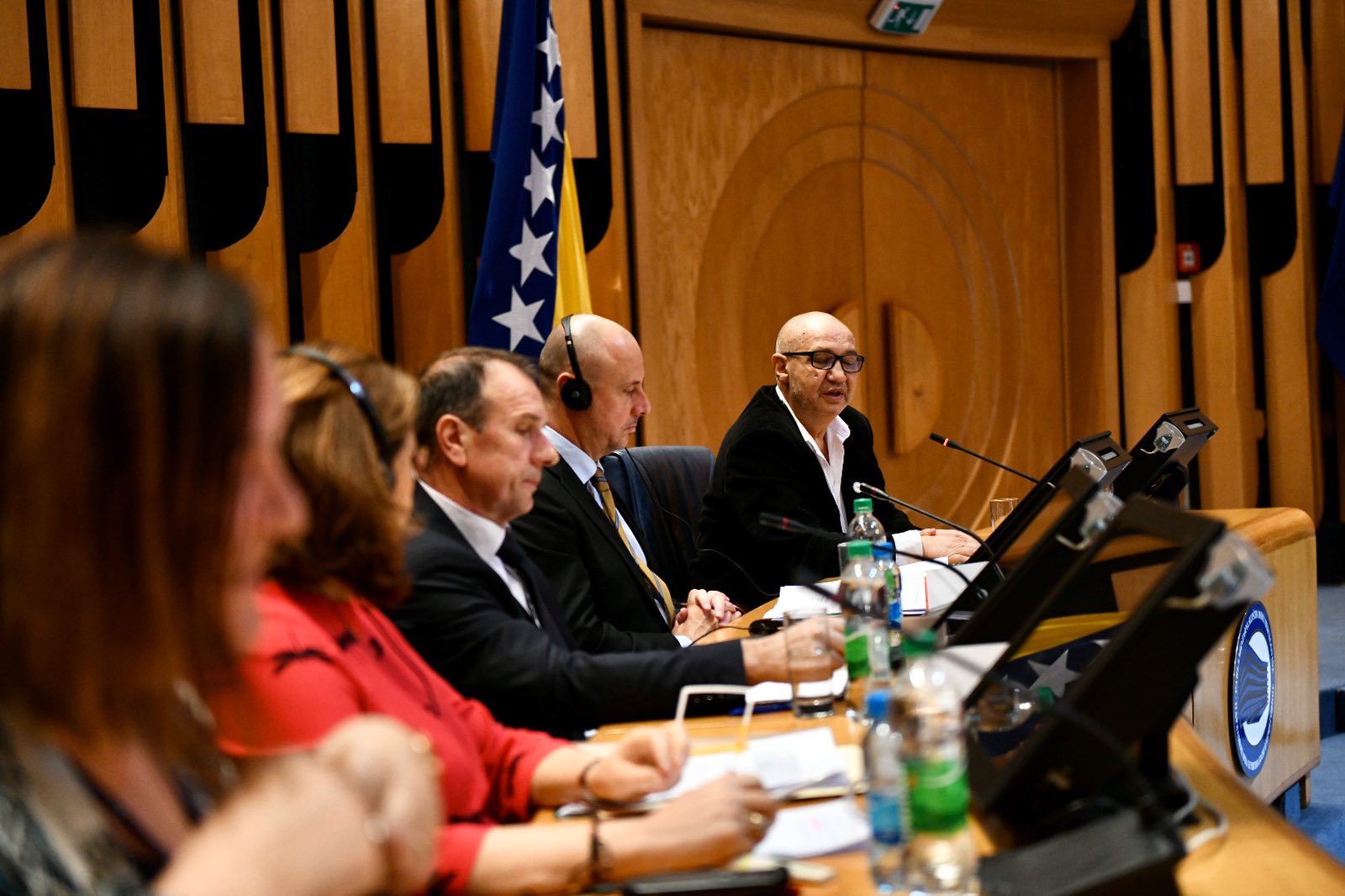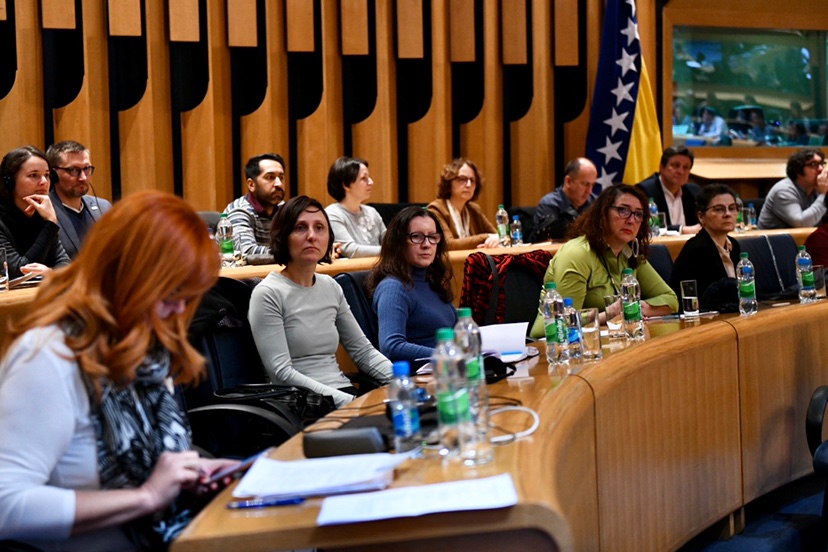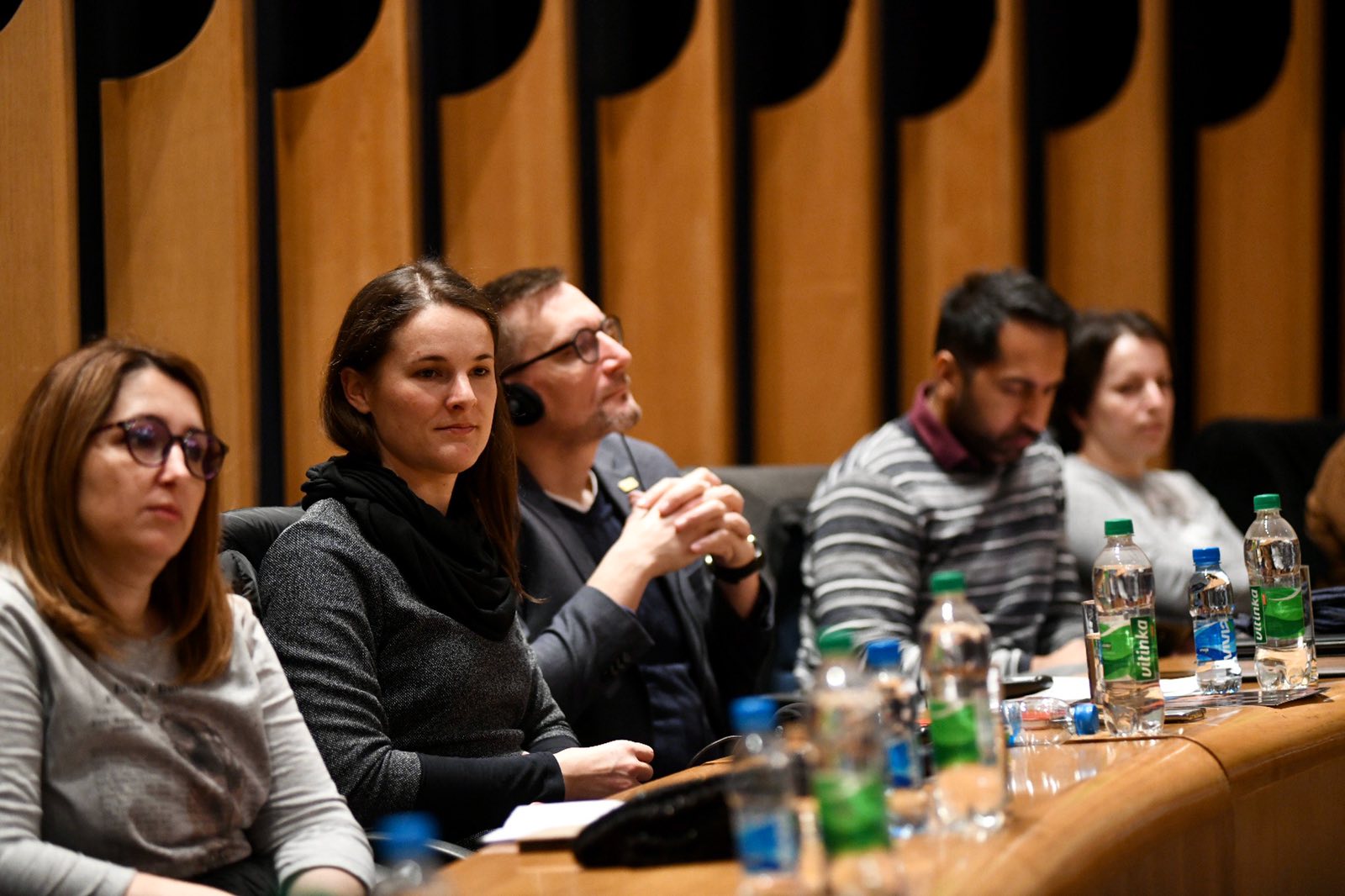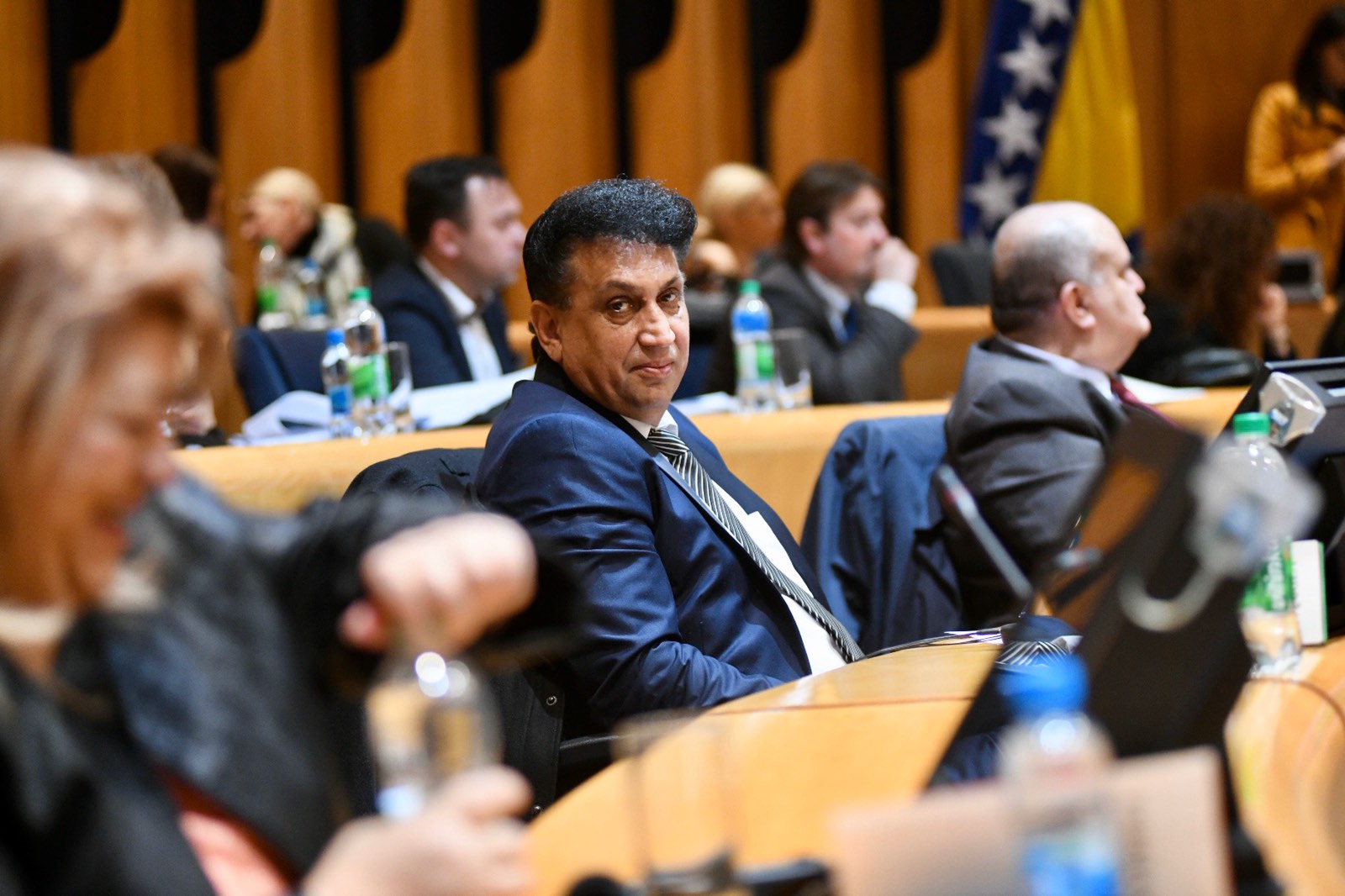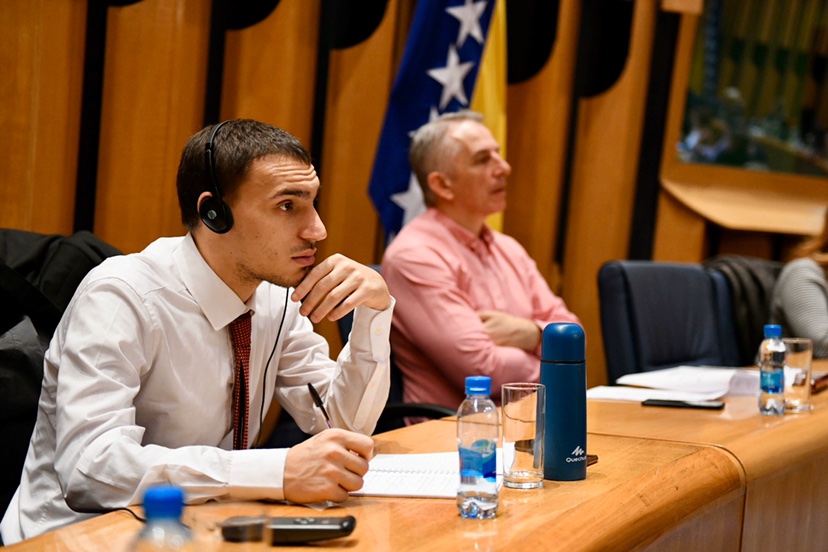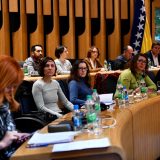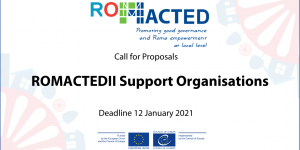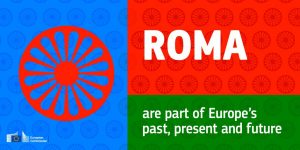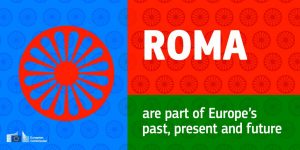“You are not alone – this is the clear message from a packed room today in the BiH Parliament – however, our challenge is to keep working together for the sake of all Roma persons,” stressed Marta Garcia Fidalgo, adviser on Roma policy at the Directorate-General for European Neighbourhood Policy and Enlargement Negotiations at the 5th biannual Roma Inclusion Seminar held today in Sarajevo. The Seminar was jointly organised by the EU Office in BiH and the BiH Ministry for Human Rights and Refugees, gathering representatives of local institutions, civil society organisations and international organisations who work actively on promoting Roma inclusion in Bosnia and Herzegovina.
Taking stock of the results achieved since the last seminar, the panelists noted that some progress has been achieved in key areas of Roma integration, most notably regarding housing, since hundreds of housing units have been provided. However, much remains to be done in the fields of education, employment, healthcare and social inclusion, as emphasised by the Deputy Head of the EU Delegation to BiH, Khaldoun Sinno, who reiterated the EU’s readiness to support concrete measures to improve the social inclusion of Roma in BiH. “Combating discrimination and promoting integration are key priorities inside the EU as well as in those countries that wish to become members. The protection of Roma in BiH remains a concern for us. We need to see proactive engagement on the protection of minorities and promotion of human rights of all citizens of BiH,” said Sinno.
Considering that two of 14 key priorities of the Commission’s Opinion on BiH’s application to join the European Union directly relate to the Roma integration process, the panelists emphasised that attention to progress in this sector will increase, and that joint effort and contributions are needed as regards the new enlargement methodology.
“Roma integration is part of the fundamentals of the EU enlargement process and one of our key priorities. We are not only interested in the paperwork but in the process of reintegration of people on the ground; that children have access to schools, that people find employment, that their homes have water and electricity, and they have access to medical support,” highlighted Garcia Fidalgo.
Chairperson of the Roma Committee within the BiH Council of Ministers underlined Dervo Sejdić said that Roma inclusion in the Western Balkans is a precondition of EU membership for this region. “This issue is no longer just a matter of social or economic policy, it is now a political issue and we need to take responsibility to realise the goals, take responsibility for what was not achieved and provide Roma citizens with more representation in education, employment, housing and health care,” said Sejdić.
Since 2007, the EU has provided over € 7.5 million to Bosnia and Herzegovina to support the socio-economic inclusion and integration of Roma in BiH, including through support to housing. As part of her visit to BiH, Garcia Fidalgo will visit Roma families who are benefiting from EU assistance in Zenica and Kakanj.

